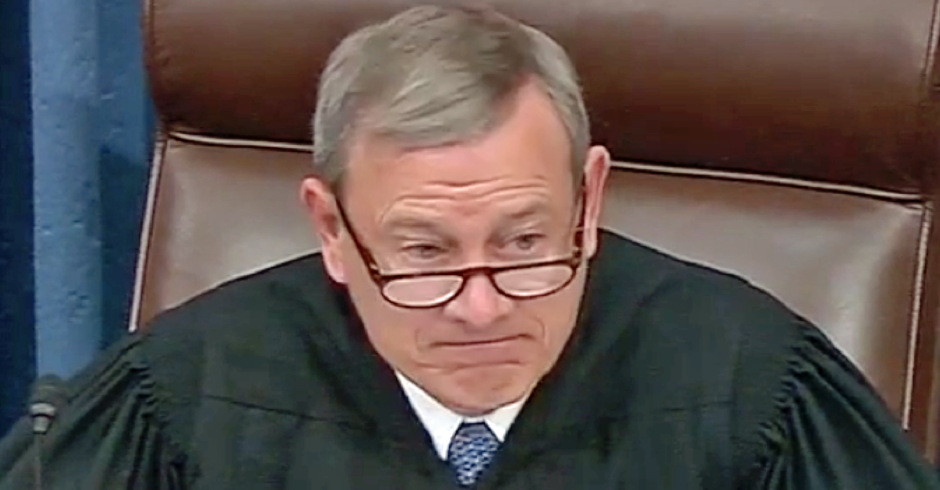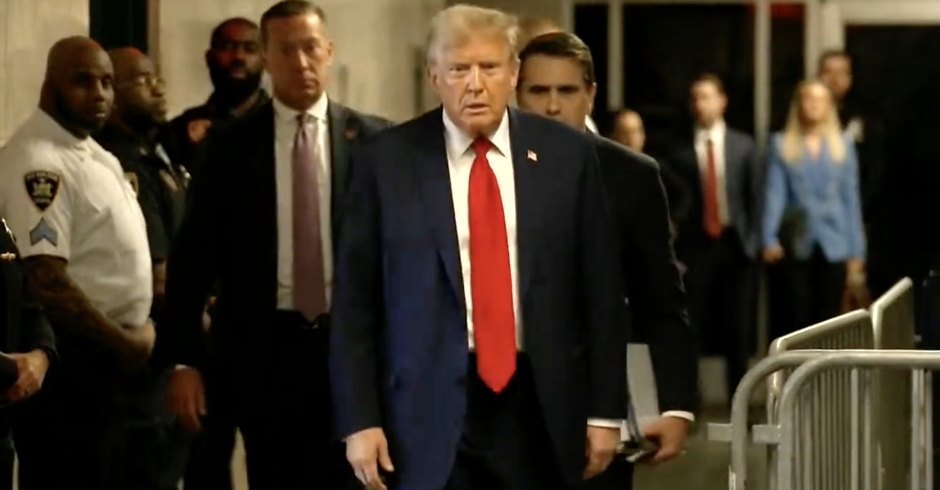News
‘Empty, Toothless, Ineffective’: Supreme Court’s New Ethics Code Quickly Criticized

In a rare move amid multiple and massive ethics scandals, the U.S. Supreme Court on Monday released a 15-page Code of Conduct for its own justices that was quickly criticized for having no means of enforcement or reporting options, and, as the document itself admits, is not new at all.
From the very beginning of the new ethics code document, the Court makes that: “For the most part these rules and principles are not new,” it says. And it explains the new ethics code simply puts into print what has been “the equivalent of common law ethics rules.”
Democratic strategist Sawyer Hackett blasted the code of conduct: “On the first page they refer to criticisms of huge ethics scandals as ‘misunderstandings.'”
Others pointed out concerns over the laissez-faire feeling of the document.
“The word ‘must’ appears 6 times in the Supreme Court’s new ethics code,” wrote political consultant and writer Jamison Foser. “The word ‘should’ appears 53 times.”
READ MORE: ‘Clown Car Is Carrying a Neutron Bomb’: Conservative Warns on Trump’s ‘Fetish for Brutality’
U.S. Senator Sheldon Whitehouse (D-RI), once seen as a possible nominee to the nation’s highest court, and a years-long critic of its ethics crisis, did not hold back in his initial assessment.
“The question is enforcement: where do you file a complaint; who reviews it; how does fact finding occur; who compares what happened to what’s allowed? That’s where the rubber hits the road,” he noted on social media.
Senator Whitehouse offered just a few examples.
“For instance, justices are supposed to recuse from cases where they have a personal interest, but [Justice Clarence] Thomas has never been asked about his wife’s 1/6 role or what he knew,” he observed.
“For instance, justices are supposed to report gifts and income, but Thomas has never been asked about the RV loan on which he reportedly paid only interest not principal,” he added. “For instance, justices aren’t supposed to offer out-of-court legal opinions, but Alito has never been asked about the helpful one he gave his friend Leonard Leo’s lawyer in the WSJ.”
“There are more for-instances, but you get the point: an updated ethics code with no means to enforce it still leaves a gaping hole for mischief,” Whitehouse lamented. “This Court, and this Court alone, the supposed guardian of due process, still exempts itself.”
Professor of law and political scientist Anthony Michael Kreis also stressed enforcement: “A Code of Conduct with no meaningful enforcement mechanism is a mere gesture.”
READ MORE: ‘Entire Existence Will Be Crushed’: Trump Spokesperson Threatens Critics
Writer and lawyer Jay Willis, the editor-in-chief of Balls & Strikes, which offers progressive commentary on the legal system, appeared unimpressed.
“It’s cool that the Supreme Court’s new ‘code of conduct’ includes an all-but-explicit Federalist Society Convention Carve-Out,” he wrote, mockingly.
It’s cool that the Supreme Court’s new “code of conduct” includes an all-but-explicit Federalist Society Convention Carve-Out pic.twitter.com/hHU3RpOa4n
— Jay Willis (@jaywillis) November 13, 2023
He also mocked the new code of conduct as not “real.”
An incredible passage to include. “You know that whole ‘Supreme Court Code of Conduct’ you just read, yeah none of it is real lol” pic.twitter.com/vngDbmR6Jo
— Jay Willis (@jaywillis) November 13, 2023
Presidential historian Michael Beschloss also pointed out concerns over the lack of enforcement.
“Will the just-announced new Supreme Court code of conduct include serious sanctions in case of violation, sufficient voluntary disclosure, enforcement mechanism with teeth?”
Beschloss observed: “President Nixon tried to combat Watergate ethics allegations by waging an empty, toothless, ineffective public relations effort dubbed “Operation Candor.” Would be terribly rude if anyone applied that name to the mild new Supreme Court code of conduct.”
President Nixon tried to combat Watergate ethics allegations by waging an empty, toothless, ineffective public relations effort dubbed “Operation Candor.”
Would be terribly rude if anyone applied that name to the mild new Supreme Court code of conduct. pic.twitter.com/2AvIyed00f— Michael Beschloss (@BeschlossDC) November 13, 2023
David Rothkopf, the foreign policy, national security and political affairs analyst, blasted the new code of conduct:
READ MORE: ‘God Given Rights’: Ohio GOP Lawmakers Will Try to Strip Jurisdiction Over Abortion from Judges
“The new Supreme Court ethics code is a symptom of the problems the institution faces rather than a step toward solving them. It is a promise to do better that includes significant loopholes and no enforcement mechanism. It shows more contempt for public ethics concerns rather than responsiveness to them.”
Civil liberties and national security journalist Marcy Wheeler seemed to sum it all up: “Why would Clarence Thomas adhere to a code of conduct w/no enforcement mechanism when he doesn’t even comply with disclosure requirements?”
See the social media posts above or at this link.
Enjoy this piece?
… then let us make a small request. The New Civil Rights Movement depends on readers like you to meet our ongoing expenses and continue producing quality progressive journalism. Three Silicon Valley giants consume 70 percent of all online advertising dollars, so we need your help to continue doing what we do.
NCRM is independent. You won’t find mainstream media bias here. From unflinching coverage of religious extremism, to spotlighting efforts to roll back our rights, NCRM continues to speak truth to power. America needs independent voices like NCRM to be sure no one is forgotten.
Every reader contribution, whatever the amount, makes a tremendous difference. Help ensure NCRM remains independent long into the future. Support progressive journalism with a one-time contribution to NCRM, or click here to become a subscriber. Thank you. Click here to donate by check.
 |

























